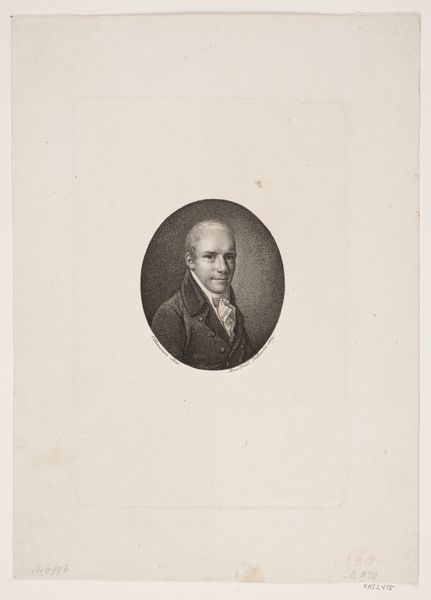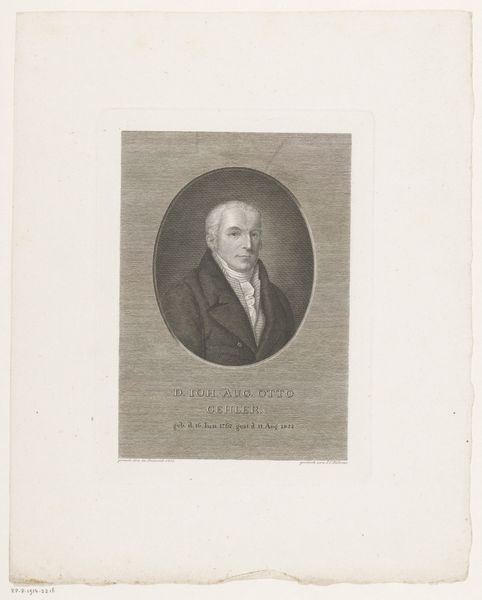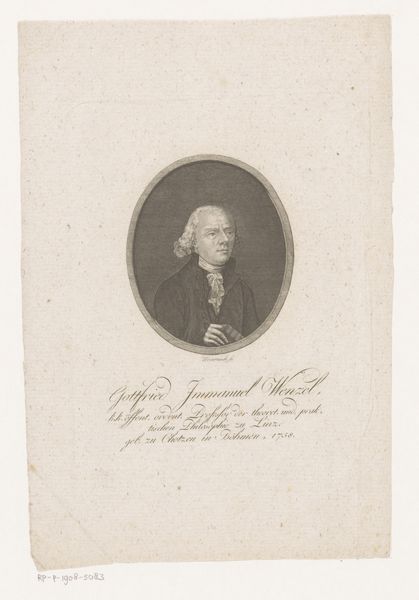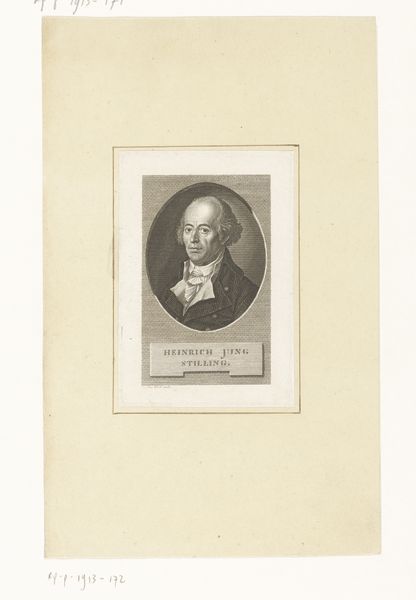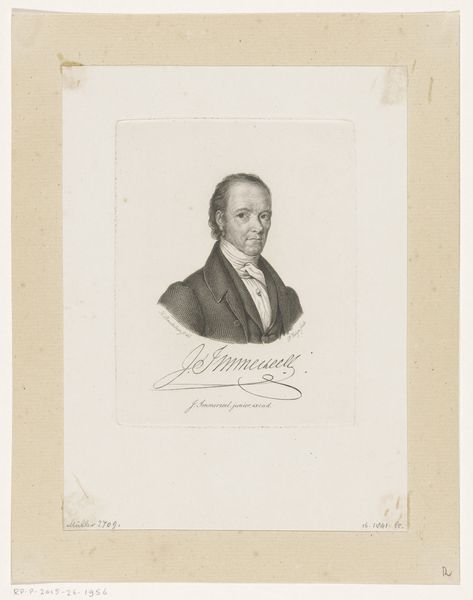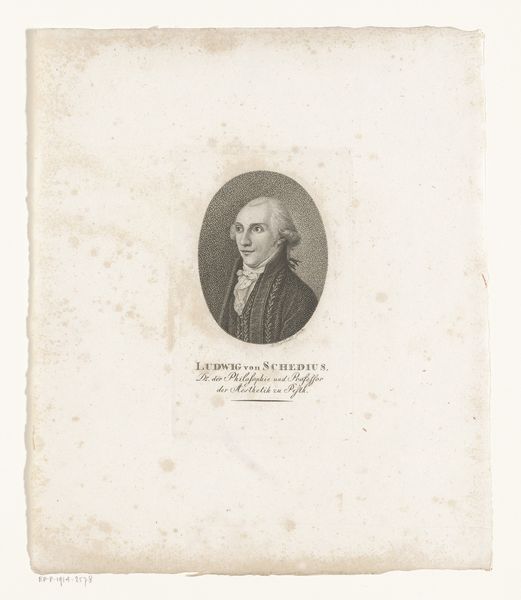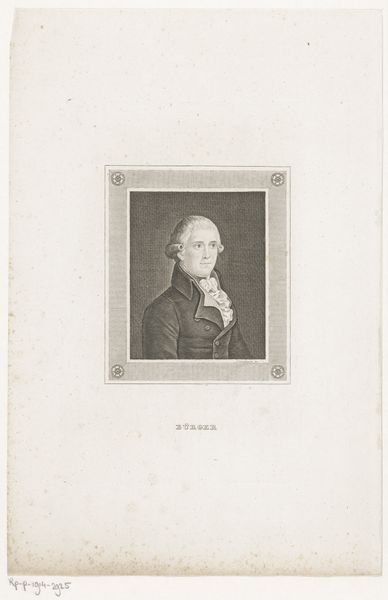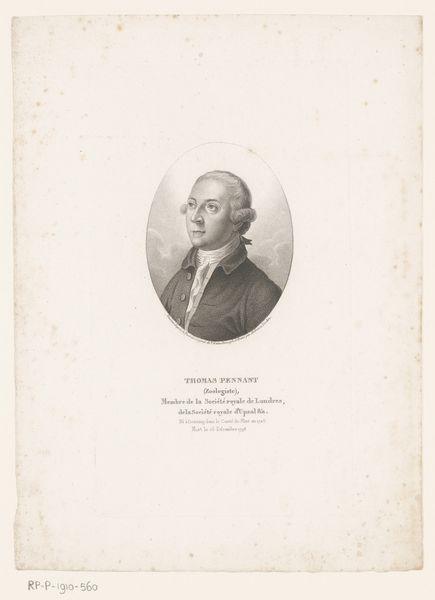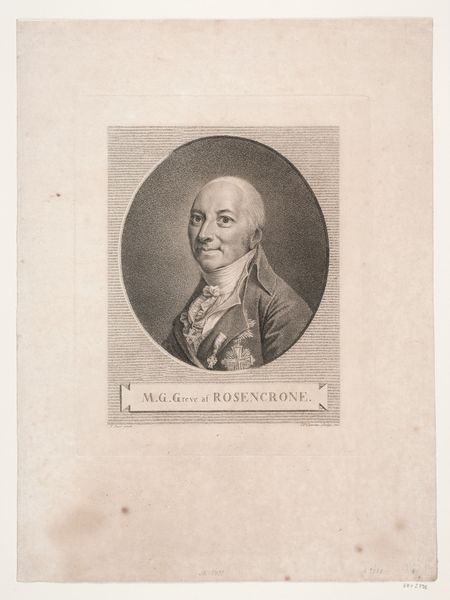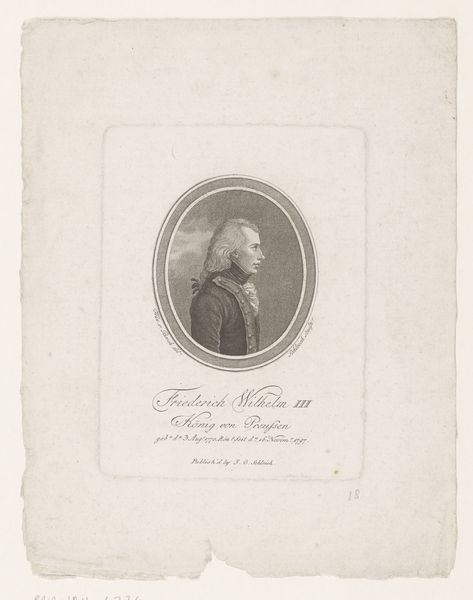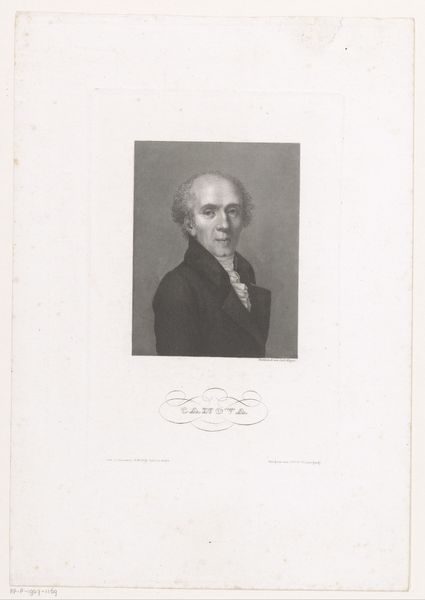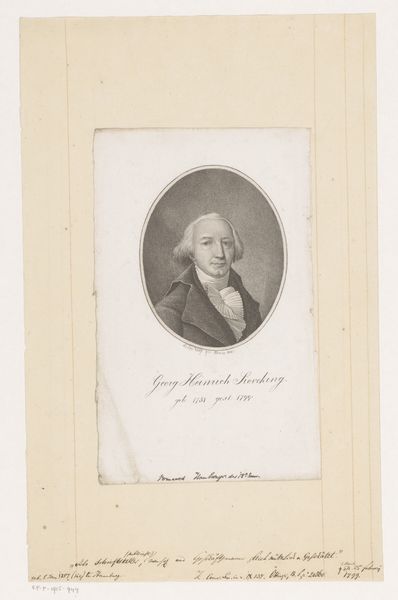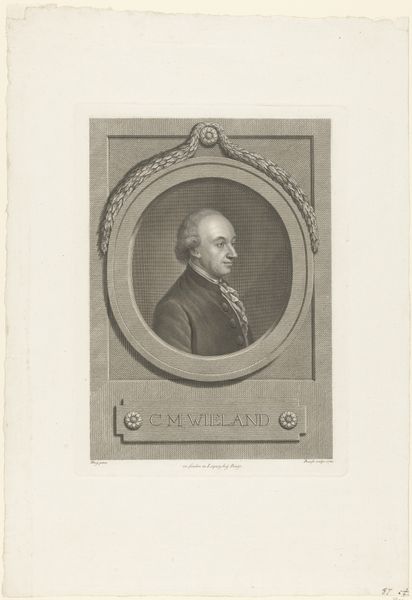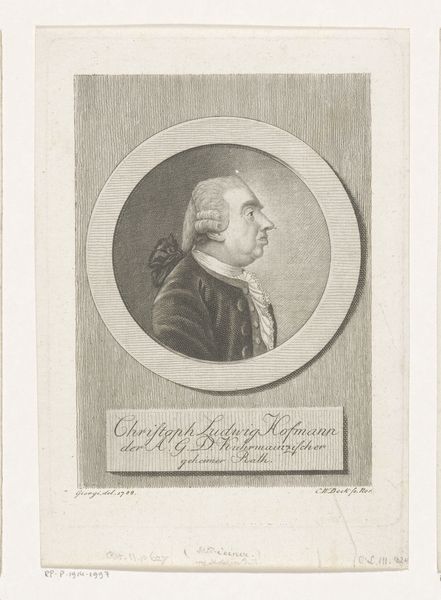
engraving
#
portrait
#
neoclacissism
#
old engraving style
#
academic-art
#
engraving
Dimensions: height 190 mm, width 120 mm
Copyright: Rijks Museum: Open Domain
Editor: This is Johann Friedrich Wilhelm Müller’s "Portret van August Hermann Niemeyer," an engraving from between 1840 and 1855. It has such a formal, almost severe quality. What strikes you about it? Curator: What I find compelling is how this seemingly straightforward portrait actually opens up questions about social mobility and representation in 19th-century Prussia. Who was Niemeyer, and why was it important to create and circulate this image of him? Was it about affirming his status? Reinforcing certain ideals? Editor: According to the Rijksmuseum’s page, Niemeyer was a German Protestant theologian and educator. How does knowing this affect how we interpret the portrait? Curator: It shifts our perspective. Think about the context: post-Enlightenment Europe. There was a rising middle class hungry for education and self-improvement. Niemeyer, as an educator, played a pivotal role. This portrait, with its neoclassical frame, subtly aligns him with ideals of reason, order, and civic virtue. But it also raises the question: who had access to these ideals and to having their image immortalized? Editor: So, the portrait isn’t just a likeness, but a statement about social values and power structures? Curator: Precisely. And it's an assertion of a certain type of masculinity linked to intellect and public service. It encourages us to think critically about who gets remembered and why. Do you see something new? Editor: I do. I didn’t think an engraved portrait could speak volumes about the social and intellectual climate of its time. Thanks, that's fascinating. Curator: The pleasure is all mine. It shows that what seems traditional, is anything but.
Comments
No comments
Be the first to comment and join the conversation on the ultimate creative platform.
